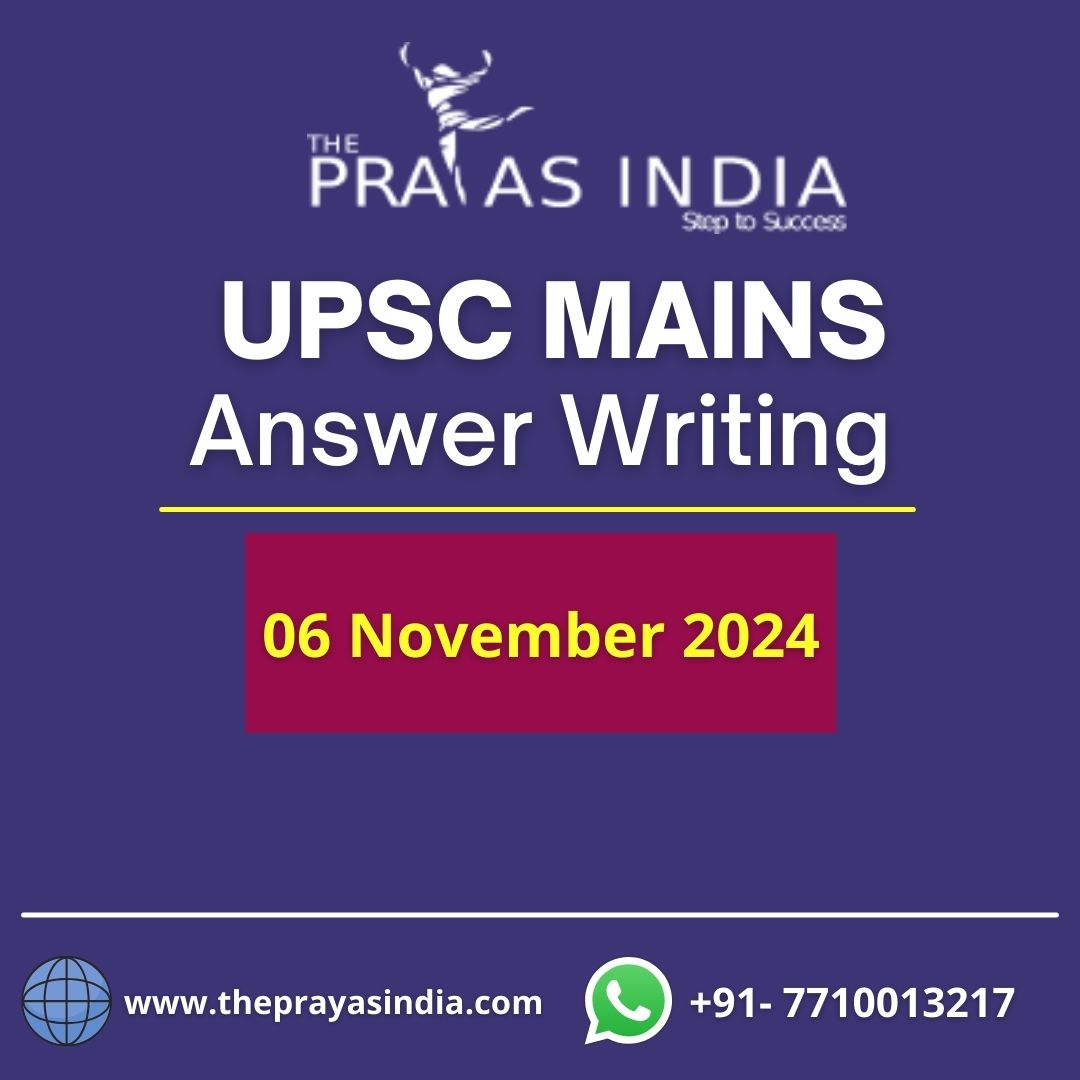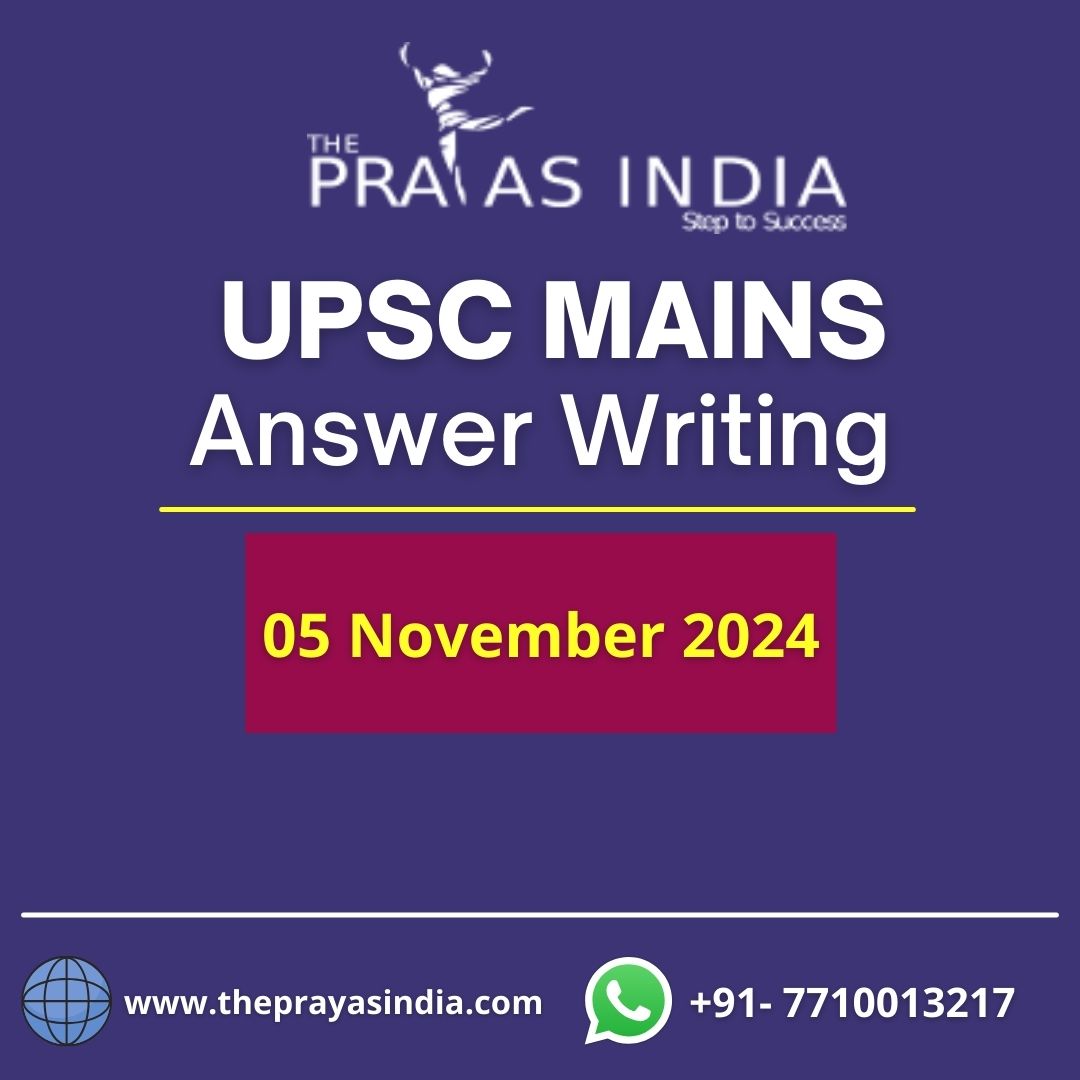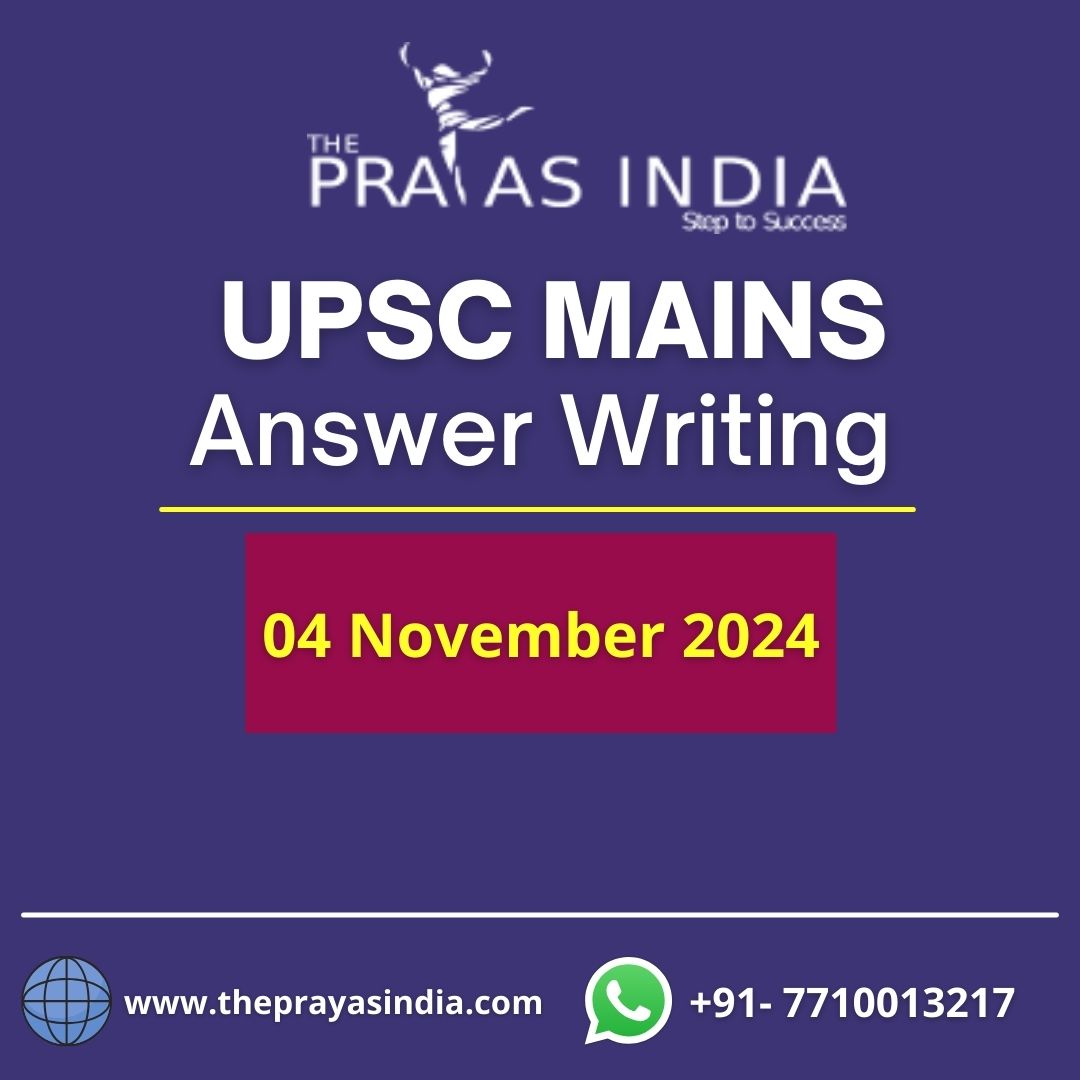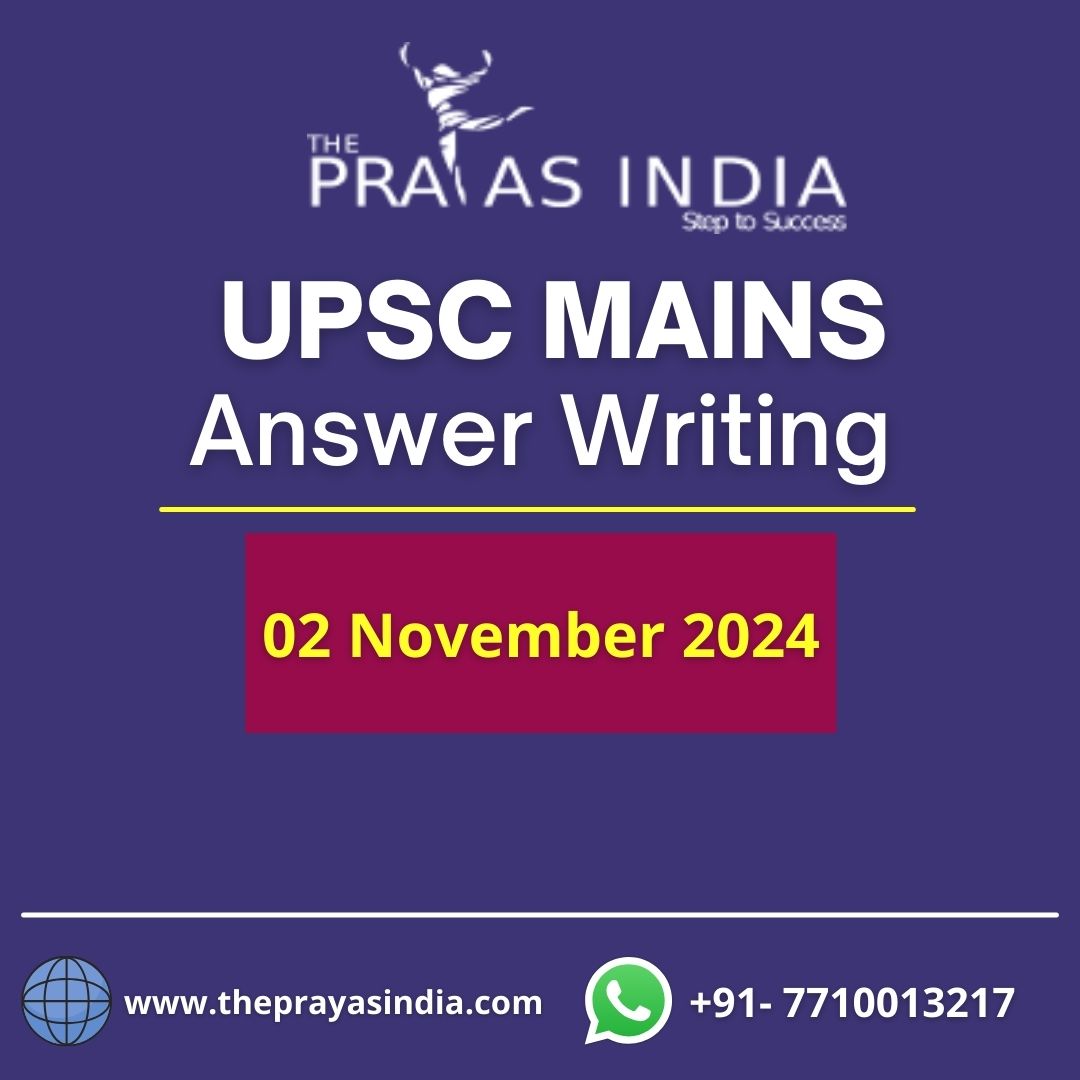03 August 2022 – Daily Mains Answer Writing & Model Answer
Q1. What are the powers enjoyed and the functions performed by the President of India? (250 words)
Paper & Topic: GS II à Indian Parliament
Model Answer:
- India’s president serves as both the country’s first citizen and its head of state. He is a member of the Union Executive, whose provisions, including those pertaining to the President, are covered under Articles 52 to 78. (Article 52-62). Every executive action of the Union is carried out by the President. It should be noted that Article 74 in this circumstance mandates that the President act on the advice of his Council of Ministers.
The President’s Powers And Responsibilities Under The Constitution:
- The President of the union, in accordance with Article 53, has the executive power, which he may exercise directly or through officers who answer to him, provided that they always act in accordance with the Constitution.
- In the constitution, executive power is not defined. Usually, it’s used to describe the process of the government function that continues to exist even after the legislative and judicial functions have been eliminated.
- Generally speaking, “executive function” refers to both formulating and implementing policies.
- The authority to govern the operations of the State while omitting tasks that the legislative and judicial branches are given by the Constitution can therefore be summarily defined as the executive power.
Administrative Authority and Responsibilities of the President:
- The authentication requirements for orders and other documents prepared and executed in the President’s name may be outlined in rules that he issues.
- The President appoints the Prime Minister and other Ministers.
- The Attorney-General of India sets his compensation.
- those that run each state.
- judges from the High Courts and Supreme Court, the Indian Finance Commission’s chairman and members, the Union Public Service Commission’s chairman and members, the Chief Election Commissioner and other election commissioners, the Comptroller and Auditor General of India,
- Among the commissions that have been constituted are the National Commissions of Scheduled Castes, Scheduled Tribes, Other Backward Classes, a commission to report on the administration of the Scheduled Areas, a commission on official Language, and Special Officer for Linguistic Minorities.
- He has the power to declare any location a scheduled area and to direct the administration of both scheduled and tribal lands.
- He appoints an inter-state council to encourage intra-state and inter-state collaboration.
Legislative Power:
- The President, a crucial member of the Parliament, has the following legislative authority.
- The President dissolves the Lok Sabha and prorogues one of the two Houses of Parliament at least twice every year. In the event of a tie vote, he may call a joint session of both Houses to discuss or vote on the item in question.
- He has the option of speaking to each house separately or aloud. The President addresses the nation at the start of the first session after every general election.
- He names the chairman/deputy chairman, speaker, and deputy speaker of the Lok Sabha when openings occur in those positions.
- He suggested two Anglo-Indian candidates for the Lok Sabha and twelve for the Rajya Sabha. The special seat for Anglo-Indians in the Indian Parliament and State Legislature, however, was abolished in January 2020 by the 104th Constitutional Amendment Act of 2019.
- Each Bill passed by the Parliament requires the President’s assent in order to become an Act. The President may give his or her assent to a bill other than one involving money or a constitutional amendment, but he or she may also withhold his or her assent or send the bill back to Parliament for revision with a new proposal. His proposal may be approved or rejected by Parliament, but if it is submitted again to the President for consideration, the President must now accept it.
- The President requests that the Parliament hear from specific reports and statements.
- the Annual Financial Statement and Supplementary Statement.
- the Finance Commission’s proposal, the Comptroller and Auditor General’s report on the Indian Government’s financial records.
- Outlining the reasons for any suggestion the Union Public Service Commission may reject, in a report.
- Tribes and castes that are listed as scheduled Report of the National Commission
- a report from the Special Officer for Linguistic Minorities
- The report of the commission on the underclasses.
- Several laws need the President’s approval in advance of being tabled in the Parliament.
- a law that seeks to alter the state names and boundaries.
- Dollar Bill
- A budget bill is one that addresses taxation or funding for the States.
- a Bill that would restrict the freedom of trade.
Veto Powers:
- After being approved by both Houses of Parliament, a Bill is delivered to the President for his signature. It shall not be deemed to be a law of the land until it has been approved by the President. Article 111 offers the President three options:
- There are three alternatives available to him: he can assent to the bill, in which case it immediately becomes law; he can decline to assent to the bill; or, in the case of legislation other than money bills, he can send the bill back to the House for more consideration.
- The President has the right to veto any bill that has been submitted to him for approval. The President of India is given a variety of veto powers under the Indian Constitution, including absolute, suspensive, and pocket vetoes.
Ordinance Making Power:
- The President’s power to adopt ordinances is specified in Article 123. In addition to other legislative powers, the President also has this one. On the recommendation of the union cabinet, he issues an ordinance.
Financial Powers:
- He oversees the India Contingency Fund, which is designed to cover unanticipated expenses such as disaster, drought, war, etc.
- He has already suggested that the money law and finance bill be introduced in Parliament.
- You must first get his approval before submitting a grant request.
- The Indian President names members of the Finance Commission every five years.
- In addition, he gives the Finance Commission’s recommendations and the Comptroller and Auditor General’s report on the Government of India’s financial statements to the Parliament.
Diplomatic Power:
- Any international treaties and agreements that the Parliament approves are negotiated and signed by the President.
- He represents India in international discussions and events.
- He sends and receives ambassadors and other diplomatic agents.
Q2. What is Anti Defection Law and what is its purpose? (250 words)
Paper & Topic: GS II à Indian Parliament
Model Answer:
What is Anti-Defection Law:
- Specific MPs and MLAs who switch parties are subject to penalties under the anti-defection act.
- It was added by Parliament to the Constitution’s Tenth Schedule in 1985. Its objective was to maintain political stability by discouraging MPs from switching parties.
- The Tenth Schedule, popularly known as the Anti-Defection Act, was included into the Constitution through the 52nd Amendment Act of 1985.
- It spells out the conditions under which elected officials are ineligible to serve if they switch political parties.
- This response was brought on by the state administrations being overthrown by party-hopping MLAs following the 1967 general elections.
- However, it does allow a group of MPs or MLAs to join (or join forces with) a different political party without running the risk of paying a defection penalty. Political parties are also not penalised if they support or oppose rebellious lawmakers.
- A “merger” was defined by the 1985 Act as the “defection” of one-third of the members of an elected political party.
- The 91st Constitutional Amendment Act of 2003 changed this, and today, at least two-thirds of the members of a party must support a “merger” in order for it to be regarded as lawful.
- The members of Congress who are ineligible to serve in the House may compete for office in elections under any political banner.
- Decisions regarding defection-related disqualification are requested from the Chairman or Speaker of that House, and those requests are then subject to “Judicial review.”
- However, the statute does not provide a timeframe within which the presiding officer must decide whether to take action in a defection case.
How Does a Defection Occur?
- If an elected official voluntarily renounces their membership in a political party.
- If he votes in the House against the wishes of his political party or anybody else with the power to do so without first gaining permission, he will be in breach of the rules.
- In order for him to be disqualified, his failure to cast a ballot must not have been allowed by his party or the designated person within 15 days of the incident.
- Any independently elected politician is regarded as a member of the political party they join.
- After the first six months, any nominated member who joins a political party will still be regarded as one.
How Does Defection from the Political System Affect?
- Legislators who are elected on the platform of one party and then decide it would be more convenient to convert to another due to the enticement of cabinet slots or financial rewards commit defection, which is the subversion of election mandates.
- Effects on Regular Government Operations
- In the 1960s, the infamous “Aaya Ram, Gaya Ram” slogan was developed in reaction to the ongoing defections of lawmakers.
- The defection disrupts the political system and has an effect on the executive branch.
- Defection also fosters legislator horse trading, which is manifestly contrary to the democratic system’s core values.
What issues is the Anti-Defection Law designed to solve?
The law’s Article 4 states:
- The Anti-Defection Law introduces three crucial concepts in paragraph 4 to create an exception for political party mergers:
- the original political party that a member belonged to (this can refer to the party generally, outside of the House).
- Political party that is currently represented by each elected member of a House is known as the legislative party.
Disputed Merger:
- Despite the fact that the Election Commission of India recognises political parties in this way, paragraph 4 is ambiguous regarding whether it relates to a national or provincial party.
- In accordance with clause 4, a merger can only happen if the original party joins forces with another political party and at least two-thirds of lawmakers approve of the merger.
- Paragraph 4 seems to be creating a “legal fiction” in order to imply that a merger of two thirds of a legislature party can be regarded as a merger of political parties, even if there isn’t a real merger of the original political party with another party.
- Undermining Representative and parliamentary democracies: Following the passage of the Anti-defection law, MPs and MLAs were compelled to cast their votes in accordance with the party policy without being free to use their own discretion.
- Due to the Anti-Defection statute, which only holds MPs accountable to their political party, the chain of accountability has been broken.
Role of Controversial Speaker: When the House Chairperson or Speaker should intervene in anti-defection cases is not explicitly stated in the statute.
- Legal cases might last anywhere from three to six months. Some cases are settled after the semester is over.
- No Recognition of Split: The 91st Constitutional Amendment Act of 2003 revised the anti-defection statute to include an exception for anti-defection judgments.
- The amendment, however, recognises a “merger” inside a legislature party as opposed to a “split.”
Allows only Numerous Defections:
- While wholesale desertion is allowed, retail defection is not. The gaps must be filled, thus modifications are required.
- He voiced concern that even though a politician might switch parties, they shouldn’t be given a job in the new one.
- influences the discussion and debate:
- Thanks to the Anti-Defection Law, India currently has a democracy focused on parties and numbers rather than one based on discussion and debate.
- This undermines legislative debates on all measures and makes no distinction between defection and disagreement.
What different recommendations exist in regards to the Anti-defection Law?
- It has been suggested by the Election Commission that it be the body that decides whether to allow defections.
- Some have argued that the President and the Governors should hear applications for defection.
- The Supreme Court has advised Parliament to create an impartial panel headed by a retired judge from the higher judiciary in order to swiftly and fairly decide defection cases.
- The law has been deemed unsuccessful by some commentators, who have called for its repeal. Hamid Ansari, a former vice president, claims that it only pertains to preserving governments during motions of no-confidence.
What can be done to improve the Anti-Defection Law’s efficacy?
Reasonable application of the anti-defection law:
- Several commentators contend that the restriction should only be imposed on votes that have an effect on the stability of the government. Examples include the passage of the annual budget or a motion of no confidence.
Advice from the Election Commission:
- Following the Election Commission’s advice, a number of commissions, including the National Commission to Review the Working of the Constitution (NCRWC), have recommended that the President (in the case of MPs) or the Governor (in the case of MLAs) make the decision to disqualify a member rather than the Presiding Officer.
- To handle disqualification independently: Because the Speaker’s position depends on the House majority’s ongoing support, Justice Verma ruled in the Hollohan decision that he does not fit the requirements for such an independent adjudicating body.
- Furthermore, a significant element of the fundamental characteristic is violated by his appointment as the only arbitrator in the dispute.
- As a result, instances involving defection need to be handled by a different authority.
- advancing the notion of party democracy within parties A political party cannot operate both internally as a dictatorship and externally as a democracy, according to the 170th Law Commission study, which highlighted the importance of intra-party democracy.
- As a result, the parties must talk and consider the members’ perspectives. This would promote party democracy and open communication among its members.
- Analysis by the Supreme Court: In order to determine how the anti-defection law will be applied moving ahead, the Supreme Court needs soon revisit the Tenth Schedule on a theoretical level.




